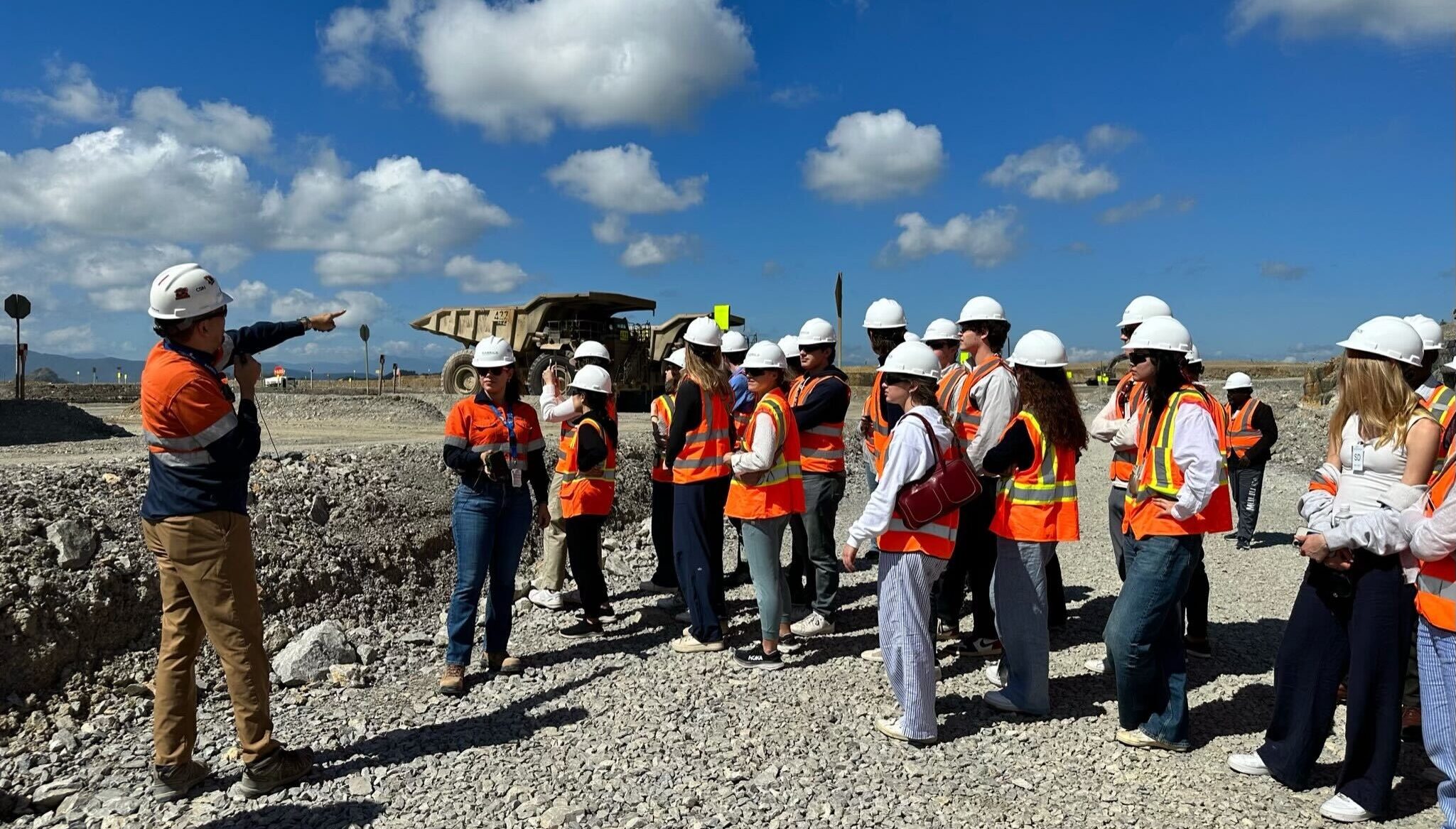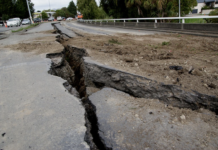![]()
As political instability in Haiti spirals, a small group of Georgetown students reflect on their educational trip through the core and border cities of the Dominican Republic (D.R.). Their experience was marked by a plethora of conflicting emotions, as they reassessed their preconceived notions about development, inspiring moments of introspection and personal growth.
Originally conceived as a year-long project for students to consult for a client in a developing country, the program took a 180-degree turn after Professor Bradford Jensen solicited input from Fr. Ronald Anton of the McDonough Business School. Fr. Anton expressed his belief that students should gain first-hand experience with the communities most deeply affected by American business practices, to holistically grasp the business environment in developing countries.
In 2021, Georgetown thus launched a one week experiential program for students in the Business and Global Affairs (BSBGA) program that grants small groups of students the opportunity to visit various communities and hear a multitude of perspectives. Organizers selected the island of Hispaniola for the 2024 program, based on the island’s complex history, colonial past, institutional strengths and development trajectory.
On March 3, the Class of 2026 cohort stopped at The Libertad Batey, located in the municipality of Esperanza. Converted from colonial sugar mills, Bateyes now house societies that provide housing to families living in extreme poverty. Many of these organizations primarily house Haitians or Dominicans of Haitian descent, who are structurally disadvantaged in the Dominican Republic. Many make their living by working in rice factories or performing manual agricultural tasks, including hand-picking harvested crops.
Throughout the visit, the local guide underscored the myriad of challenges the community faces. Lack of access to higher education, clean water and stable electricity, poor irrigation and housing infrastructure significantly diminish the quality of life for these communities. Despite the harsh living conditions, the locals received their American visitors with palpable excitement and hospitality. Adults sitting in the home waved and smiled through the windows while children and teens grabbed the students to join their favorite game: soccer.
It was Frederick Balakai Mwansa’s (SFS ‘26) favorite memory.
“To hang out with people that I don’t speak with the same language and have no actual common ideas with, but the fact that we are all human, we are just having fun playing soccer was pretty cool for me,” he recalled.
The community’s vigorous creativity and savviness became readily apparent to the Georgetown students. From building small communal bathrooms and using waste as a natural fertilizer to selling handmade bracelets, the community strived to make the best of their scarce resources. The cohort left with a heartening impression of a dynamic and vibrant community that defied many’s preconceptions of the pessimism and plight often tied to extreme poverty.
The visit prompted a number of students to consider the privileges they benefit from, and carried with them in international travel. Indeed, the line between economically comfortable students from an elite American university, and the children of a marginalized community in the D.R. blurred with jerseys on and all eyes on the soccer ball. But when it was time to leave, the students hopped on their tourist buses with AC and WiFi, parting ways with their newfound friends and returning to a different world.
“They are happy about you guys’ visit,” Pepe, head of the local team of this immersion trip, told the cohort. He later detailed how the community was frequently harassed by local authorities. The residents were happy because they knew the police would not raid them with foreigners visiting, for fear of garnering international attention.
Over the next few days, students engaged in face-to-face conversations with C-suite executives of large corporations, small business owners and community advocate groups. These interactions continued to transform their perspectives on economic development and business.
The cohort had mixed opinions of CODEVI, one of the D.R.’s largest corporations. CODEVI’s industrial park received “free zone” status, which is designed to reduce global business barriers, improve business productivity and scale targeted industry sectors. Its operation in the Dominican Republic has driven local development, created employment opportunities and attracted foreign direct investment by supplying low-skill labor to the textile and other manufacturing industries along the northern border of Haiti and the Dominican Republic.
However, although the free zone created jobs and stimulated the national economy, a majority of the economic gains were not redistributed to improve the local community’s social mobility and standards of living. Many students questioned the transparency of their practices and government contracts, in addition to their treatment of Haitian employees.
The group shared much more enthusiastic, positive reflections after speaking with owners of small enterprises, including a peanut house, fishing farm and honey producer.
“This is what international development looks like at the grassroots. Seeing all those people doing the most that they can do with the least amount of capital,” said Mwansa, observing the various levels of informal economies and the robust, trusted networks built locally by farmers and small business owners.
The cohort benefited from the opportunity to get multiple perspectives on contentious issues, engaging with advocates and opponents. On the same day, they met with administrators of the Barrick Gold Mine and activists opposed to its operation.
The manager of Barrick emphasized its enormous progress in empowering the local community through female leadership, federal tax payments, job creation and skill training programs. The manager emphasized a steadfast commitment to sustainable mining throughout the ride around the plant.
The community advocates severely condemned the mine’s disruptive impacts on the surrounding ecosystem, of particular concern to residents of an island country like D.R. They further condemned the lack of transparency in the contracting process, and failure to redistribute tax money to the affected local population.
Hearing contradictory perspectives of foreign extractive businesses like Barrick was a rare but critically informative experience for the business students.
Aaron Chan (SFS, ’26), a student in the cohort, said that hearing from both the Barrick staffers and social activists enabled him to reflect on the heavy toll of various approaches to economic development.
“It was a really impactful moment to have to face, confront and digest both perspectives at once, rather than you reading an article that obviously has an agenda either against mining or for mining,” Chan said.
Despite the brevity of the immersion experience, the entire cohort felt shaken in unique ways by the places they visited, the people they met and the culture they came to appreciate.
In addition to teaching “how to think” about complex economic challenges, the BGA program aims to provide students with firsthand experience of all sides involved in global development.
Mwansa, who grew up in Zambia, describes the trip as a “microcosm of his personality,” finding many connections between his home country and the D.R.
Giuseppe Quatela (MSB ’26), a student who visited the border wall after a large-scale prison break in Haiti on March 3, shared his experience grappling with the human element of the crisis when he noticed the border security guards were “probably of similar age to us.”
Clara Sainz (SFS ’26), another student, shared that she applied to nonprofit organizations working on migration issues for summer 2024, after witnessing first hand the challenges facing Haitian migrants faced amidst the intensifying Haiti-D.R. border crisis.
The statement, “It is almost like the less people have, the more they share,” from a local guide in the Dominican Republic resonated with me, prompting me to reflect on the many qualities in Dominican culture that developed countries could learn from.
Seeing the shift in perspective among his students, Professor Jensen, one of the faculty who helped design and lead the immersion experience, knows that the visit was successful.
“I am a cold-hearted callous economist,” Jensen said, “and I saw things on that trip that I’ll never forget and that changed the way I look at the world, and I think our students had the same experience.”
The “Head-Heart-Hand” model, utilized in Georgetown’s BSBGA program, describes a holistic approach to problem-solving, moving through stages of rational evaluation, emotion and moral alignment and tangible action. In the context of the Business and Global Affairs curriculum, the experiential trip embodies the “Heart” component of this model. It fuses the data-driven intellectual learning done in the classroom with the emotional, nuanced and complex reality of the real world. Both experiences then inform the “Hand” phase, so that students can use their acquired tools to become better practitioners.
As the cohort returns to Georgetown and continues both their academic and professional pursuits, each participant will certainly engage in some soul-searching. The most important question remains yet unanswered: In light of this moving experience, how will this BSBGA cohort reassess their roles as future business leaders, policymakers, advocates and agents of change in an increasingly interconnected world?












